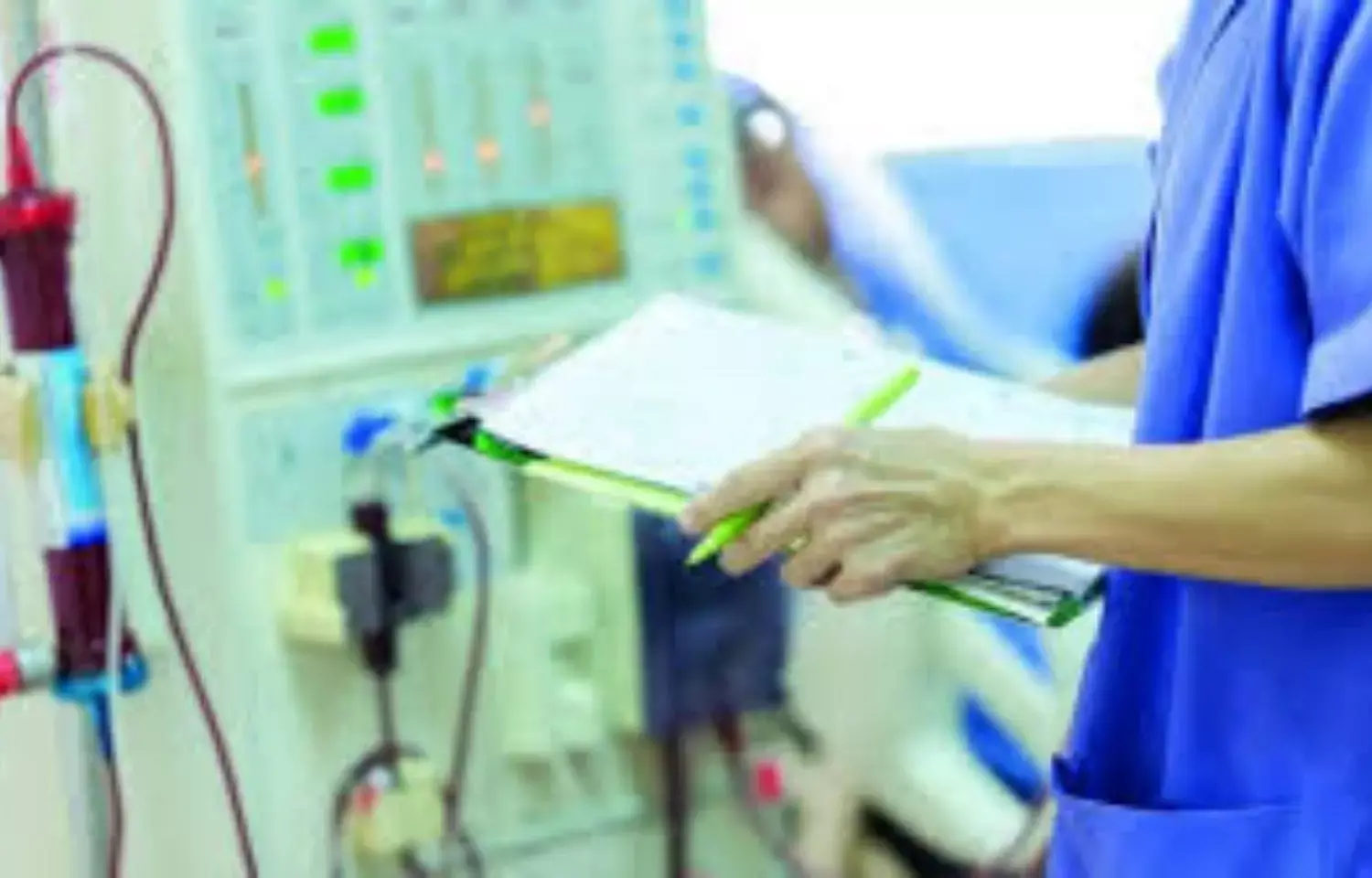- Home
- Medical news & Guidelines
- Anesthesiology
- Cardiology and CTVS
- Critical Care
- Dentistry
- Dermatology
- Diabetes and Endocrinology
- ENT
- Gastroenterology
- Medicine
- Nephrology
- Neurology
- Obstretics-Gynaecology
- Oncology
- Ophthalmology
- Orthopaedics
- Pediatrics-Neonatology
- Psychiatry
- Pulmonology
- Radiology
- Surgery
- Urology
- Laboratory Medicine
- Diet
- Nursing
- Paramedical
- Physiotherapy
- Health news
- Fact Check
- Bone Health Fact Check
- Brain Health Fact Check
- Cancer Related Fact Check
- Child Care Fact Check
- Dental and oral health fact check
- Diabetes and metabolic health fact check
- Diet and Nutrition Fact Check
- Eye and ENT Care Fact Check
- Fitness fact check
- Gut health fact check
- Heart health fact check
- Kidney health fact check
- Medical education fact check
- Men's health fact check
- Respiratory fact check
- Skin and hair care fact check
- Vaccine and Immunization fact check
- Women's health fact check
- AYUSH
- State News
- Andaman and Nicobar Islands
- Andhra Pradesh
- Arunachal Pradesh
- Assam
- Bihar
- Chandigarh
- Chattisgarh
- Dadra and Nagar Haveli
- Daman and Diu
- Delhi
- Goa
- Gujarat
- Haryana
- Himachal Pradesh
- Jammu & Kashmir
- Jharkhand
- Karnataka
- Kerala
- Ladakh
- Lakshadweep
- Madhya Pradesh
- Maharashtra
- Manipur
- Meghalaya
- Mizoram
- Nagaland
- Odisha
- Puducherry
- Punjab
- Rajasthan
- Sikkim
- Tamil Nadu
- Telangana
- Tripura
- Uttar Pradesh
- Uttrakhand
- West Bengal
- Medical Education
- Industry
What are Criteria for continuous kidney replacement therapy cessation in ICU patients?

The Netherlands: Cessation of continuous kidney replacement therapy (CKRT) in clinical practice is based on multiple arguments including the absence of fluid overload, spontaneously increasing diuresis, and improvement in creatinine clearance, says a recent study. It is often delayed until filter clotting or disconnection of the circuit because of logistic reasons. The study appears in Blood Purification, the journal of Karger Publication.
There is a lack of specific recommendations to guide the decision to cease continuous kidney replacement therapy in intensive care unit (ICU) patients. Considering this, Meint Volbeda, University of Groningen, University Medical Center Groningen, Groningen, The Netherlands, and colleagues aimed to identify criteria currently used to stop CKRT in critical care daily clinical practice.
For this purpose, the researchers used an online questionnaire with multiple-choice questions designed with web-based software from SurveyMonkey. A total of 169 completed questionnaires were received from intensivists (n = 126) and nephrologists (n = 43).
Salient findings of the study include:
- Essential determinants for the cessation of CKRT were a spontaneously increasing diuresis (indicated by 92% of the respondents), absence of fluid overload (indicated by 88% of the respondents), and improvement in creatinine clearance (indicated by 61% of the respondents; intensivists 56%; nephrologists 77%).
- Most often mentioned cut-off values used for increase in diuresis were 0.25 and 0.5 mL/kg/h (35% and 33%, respectively).
- Actual CKRT cessation was often postponed until the filter clots or until circuit disconnection is needed because of patient transport for diagnostic or intervention procedures (indicated by 58% of the respondents).
- Expected discharge from the ICU was the most frequently reported determinant to switch from CKRT to hemodialysis (indicated by 67% of the respondents).
The authors concluded, "In clinical practice, CKRT cessation is mostly based on the absence of fluid overload, spontaneously increasing diuresis, and improvement in creatinine clearance and is often delayed until filter clotting or disconnection of the circuit because of logistic reasons."
Reference:
The study titled, "Criteria for Continuous Kidney Replacement Therapy Cessation in ICU Patients," was published in the journal of Karger Publication Blood Purification.
Dr Kamal Kant Kohli-MBBS, DTCD- a chest specialist with more than 30 years of practice and a flair for writing clinical articles, Dr Kamal Kant Kohli joined Medical Dialogues as a Chief Editor of Medical News. Besides writing articles, as an editor, he proofreads and verifies all the medical content published on Medical Dialogues including those coming from journals, studies,medical conferences,guidelines etc. Email: drkohli@medicaldialogues.in. Contact no. 011-43720751


